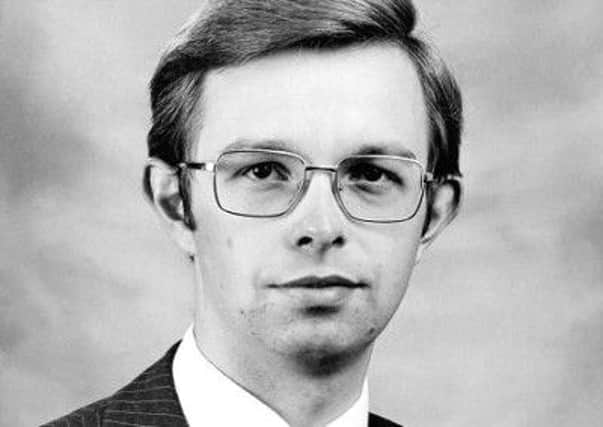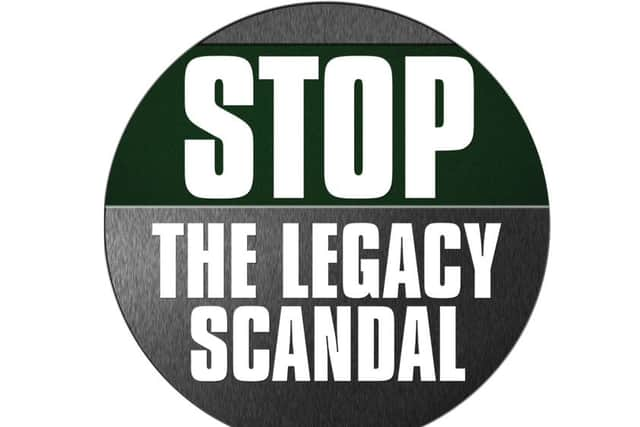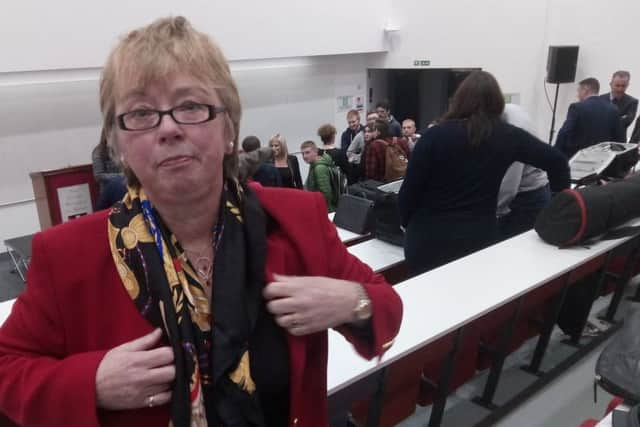We need a major public inquiry into the IRA because few of its victims will get justice


He was shot dead at the edge of Queen’s University because the IRA did not like what he had to say (he was an intelligent, articulate, robust but moderate Ulster Unionist politician).
Like most IRA murders, no-one has been convicted for the killing.
Advertisement
Hide AdAdvertisement
Hide AdThere is no plaque to him at QUB and no annual lectures in his memory.


His death was so terrible that it is well remembered to this day. Yet he would be largely unmentioned outside his family and friends if not for the News Letter and a few other outlets reminding people and if not for the determination of his sister Anne, who has asked Sinn Fein politicians: Do you condemn his murder?
Anne asked the SF leader Michelle O’Neill if she condemned the 1983 slaying when she gave a recent lecture at the university, full of references to equality and rights and condemnation of the DUP. Ms O’Neill sidestepped the question.
Sinn Fein say they regret all deaths but never admit that it was wrong to run up behind a lawyer aged 29 between lectures and shoot him in the head at point blank range because of his views.
Advertisement
Hide AdAdvertisement
Hide AdNot only has no-one been convicted of the Graham murder, Anne did not even get a Historical Enquiries Team report into the killing, just a letter explaining why no report.


Compare the handling of this despicable crime with the treatment of a similar despicable crime, the shooting dead of the lawyer Pat Finucane by loyalists in 1989. Millions of pounds have been spent on the latter case, including as part of two Stevens investigations.
The killing also got an 800 page, 250,000 word review by one of Britain’s most respected human rights lawyers, the late Desmond de Silva QC, who found collusion in the killing but no over-arching conspiracy.
The then prime minister David Cameron apologised for the “shocking” things he uncovered.
Advertisement
Hide AdAdvertisement
Hide AdMillions spent investigating one Troubles victim out of 3,700 dead, far more scrutiny than many of the other killings combined.
But it is not enough. Despite Sir Desmond’s reputation, and glowing tributes on his death this year, the Finucane family called his report a “sham”.
A full public inquiry into the murder of Pat Finucane is a core Sinn Fein demand. Irish ministers have reiterated their support, including Leo Varadkar this year.
This is because the 2001 inter-party Weston Park talks set in train a review into a number of examinations of killings on both sides of the border involving alleged collusion.
Advertisement
Hide AdAdvertisement
Hide AdIt meant that, among other killings, the murder of the hardcore loyalist Billy Wright in prison was granted a public inquiry.
This is what happens if you accept ‘collusion’ as pervasive and the baseline for wrongness in violence.
It means that there is no impetus to investigate the many straightforward, sectarian murders such as that of Mr Graham in which there is no suggestion of state collusion.
This week there was an astonishing turnaround in a case relating to killings in which there is a suggestion of loyalist collusion, the massacre at Loughinisland in 1994.
Advertisement
Hide AdAdvertisement
Hide AdIn a devastating ruling a year ago Mr Justice McCloskey criticised a Police Ombudsman report that found collusion in the killings. In his judgment in a judicial review taken by retired policemen against the report, the judge said the watchdog went beyond its statutory powers in its findings on events around the massacre.
Barra McGrory QC, who as director of public prosecutions had warned the press that faced “aggravated and exemplary damages” if they suggested that he was biased as a prosecutor, argued on behalf of the ombudsman for Mr Justice McCloskey to withdraw due to a perception of bias (because he represented police officers 16 years before in another case against a previous ombudsman).
Mr Justice McCloskey said he did not recall the case but, concerned the Loughinisland families “have become engulfed in a veritable maelstrom,” he stepped aside.
At the time I wrote about my bafflement that he stepped aside.
Advertisement
Hide AdAdvertisement
Hide AdThe London barrister Austen Morgan went further, and wrote in The Commonwealth Journal that Mr Justice McCloskey did not have to step aside and quoted an appeal court judge saying judges should resist the temptation to recuse themselves because litigants might be “able to select judges to hear their cases simply by criticising all the judges they did not want”.
Now the fact Mr Justice McCloskey did step aside has had a remarkable outcome. Mrs Justice Keegan has reached an entirely different conclusion and fully upheld the ombudsman’s Loughinisland report.
I spoke to Mr Morgan yesterday, and he believes there is a grounds for appeal for the retired police officers to argue that the original McCloskey decision stands. It seems to me in any event the Retired Police Officers Association have a duty to peers to appeal as far as possible.
We will examine the Keegan ruling in the coming weeks. In the meantime, the government should assume this week’s ruling will hold.
Advertisement
Hide AdAdvertisement
Hide AdIt should also prepare for the possibility that the Supreme Court, which is considering the Finucane case, orders a public inquiry into it. Such a ruling from Britain’s top court might not happen, but if it did would mean that that murder got even more millions spent on it.
If there are inquiries against deaths that implicate the state decided on ‘the balance of probabilities’ (Finucane, Bloody Sunday, at a cost of £10m+ per victim, civil cases, inquests, etc) then we need probes into the IRA on the same basis.
After all, courts struggled to convict their leaders and most prolific killers to the criminal standard of ‘beyond all reasonable doubt’.
Those of us who have been saying that the whole legacy process is easier on terrorists, the great bulk of whom were republicans (2,100 murders out of 3,700 dead) are often told that we must accept the Stormont House Agreement (SHA) structures, currently out to consultation, because otherwise the grossly unbalanced legacy system will continue (ie inquests into mostly state killings, a PSNI legacy branch that is overwhelmed by investigations in state killings, etc).
Advertisement
Hide AdAdvertisement
Hide AdEither way means balance of probabilities probes into state forces.
The notion that this is profoundly unfair has made little headway. The DUP and Tory government agreed SHA. As a result of that deal, police alone face misconduct investigations in the coming legacy bodies. We have carried in our legacy scandal series articles by lawyers, commentators and ex policemen saying this is a travesty of justice.
If the government had any nerve it would try to balance the overall imbalance against the state by ordering a public inquiry into the IRA.
Such an inquiry would draw on all intelligence, security and government sources to find out who led this terror network, how it was so effective, who was behind its worst atrocities, how UK adherence to the rule of law resulted in thousands of people dying at the hands of known murderers, the extent to which the Irish Republic was a safe haven, how to prevent something similar in future, and so on.
Advertisement
Hide AdAdvertisement
Hide AdI mentioned this public inquiry idea to a wise, experienced Westminster operator, a man I greatly admire. With a touch of impatience, he said: “It will never happen.”
True, it probably won’t. Yet, unforgivably, we let state forces who prevented civil war be judged and damned to a burden of proof that is not accepted in a criminal court.
• Ben Lowry (@BenLowry2) is News Letter deputy editor